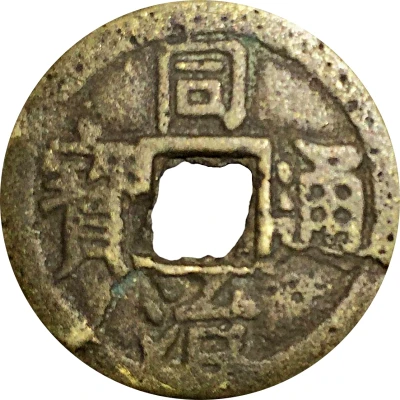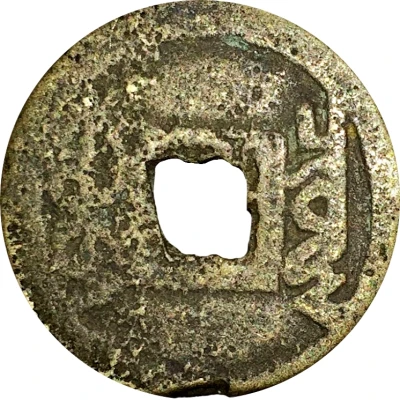1 Cash - Tongzhi Tongbao; Boo-gui; with circle ND
| Brass | - | 23 mm |
| Issuer | Empire of China |
|---|---|
| Emperor | Qing dynasty › Tongzhi (同治帝) (1861-1875) |
| Type | Standard circulation coin |
| Years | 1862-1864 |
| Value | 1 Cash |
| Currency | Cash (621-1912) |
| Composition | Brass |
| Diameter | 23 mm |
| Shape | Round with a square hole |
| Technique | Cast |
| Orientation | Medal alignment ↑↑ |
| Demonetized | Yes |
| Updated | 2024-10-03 |
| Numista | N#226541 |
|---|---|
| Rarity index | 95% |
Reverse
Two Manchu words (read vertically) separated by the hole, all with circle above.
Script: Mongolian / Manchu
Lettering: ᠪᠣᠣ ᡤᡠᡳ
Translation: Boo-gui
Edge
Plain
Interesting fact
One interesting fact about the Standard circulation coin 1 Cash - Tongzhi (Tongbao; Boo-gui; with circle) ND (1862-1864) from Empire of China made of Brass is that it was designed by a French engraver named Jean-Antoine Bovy, who was commissioned by the Chinese government to create a new currency for the country. Bovy's design featured a circle in the center of the coin, which was a departure from the traditional Chinese coin design that featured a square hole in the center. This design change was intended to make the coins easier to stack and store, and it became a distinctive feature of Chinese coins from this period.

